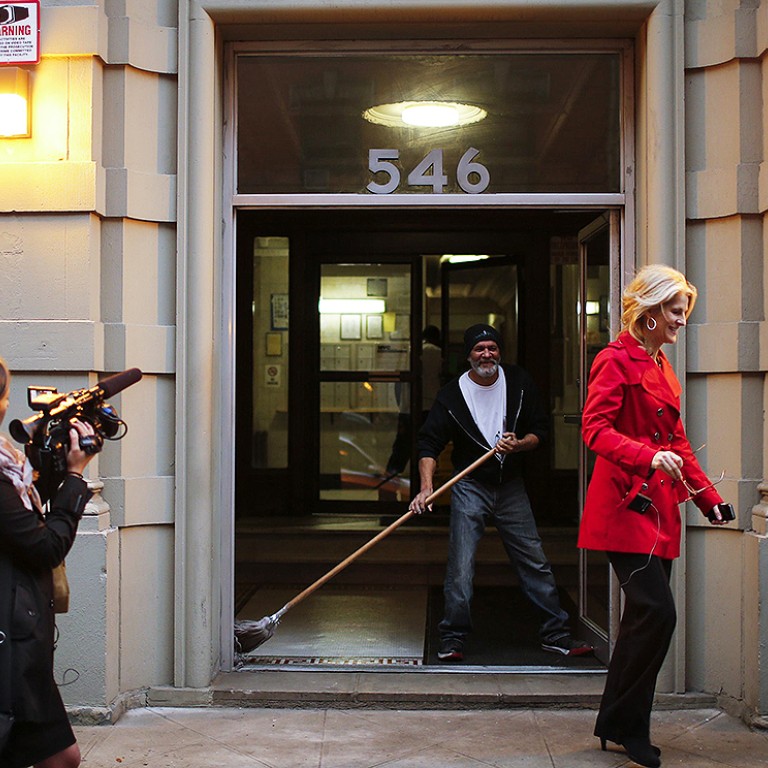
Update | MSF doctor tests positive for Ebola after returning to New York from West Africa
Medecins Sans Frontieres physician who worked with Ebola victims in Guinea, West Africa tests positive for the deadly virus in New York
A physician with Medecins Sans Frontieres who returned to the United States from West Africa has tested positive for Ebola, the said on Thursday.
The doctor was identified in New York as Craig Spencer, who was working for the humanitarian organisation in Guinea, one of the three West African nations hardest hit by Ebola.
Spencer, 33, developed a fever and gastrointestinal symptoms and notified Medecins Sans Frontieres on Thursday morning, the organisation said in a statement.
He was transported to Bellevue Hospital from his Manhattan apartment by a specially trained team wearing protective gear, the New York City Department of Health and Mental Hygiene said in a statement.
He tested positive for Ebola, the said, making him the city’s first diagnosed case.
Spencer’s Facebook page, which included a photo of him clad in protective gear, said he went to Guinea around September 18 and then flew to Brussels on October 16.
He has specialised in international emergency medicine at Columbia University-New York Presbyterian Hospital in New York City since 2011, according to his profile on the LinkedIn career website.
Columbia in a statement said he has not been to work nor seen any patients since his return.
Spencer arrived at John F Kennedy International airport on October 17 and went through the ramped-up screening for travellers from the worst-hit West African countries, officials said.
The US Centres for Disease Control (CDC) said the patient “participated in the enhanced screening for all returning travellers from these countries” on his arrival at JFK.
This referred to special screening introduced earlier this month at five major US airports – including JFK – for travellers coming from the three countries in West Africa worst hit by Ebola.
The doctor “went through multiple layers of screening and did not have a fever or other symptoms of illness,” the CDC added in a statement.
New York health officials now face the challenge of deciding how wide a net to cast for his possible contacts in the largest, most crowded city in the United States.
Since Spencer’s return, city officials say, he visited a city park, had a meal at a restaurant, visited a Brooklyn bowling alley, took at least three subway trains and went for a run.
A New York health official involved in the case told reporters that the focus will now be on finding people who have had close contact with the doctor.
Dr Mary Travis Bassett, the city’s health commissioner, said at a press conference that Spencer had only come in close contact with two friends and his fiancee, all of whom seemed fine but had now been quarantined.
Officials had spoken to a taxi driver who had given Spencer a ride on Wednesday but did not consider him at risk.
Officials will not undertake the nigh impossible task of tracking down every last commuter who rode the same subway trains as Spencer because the chance any of them had caught Ebola was “probably close to nil,” she said.
The worst Ebola outbreak on record has killed as many as 5,000 people in West Africa since March, with a small number of infections detected outside Africa. The first patient to be diagnosed on US soil, Liberian traveller Thomas Duncan, arrived in late September and died on October 8. Two nurses who treated him fell ill.
Since then, US hospitals have been on high alert, with dozens of suspected cases evaluated for the virus. Spencer is the first confirmed case in New York.
The city will follow guidelines laid down by the US Centres for Disease Control and Prevention, which says that Ebola is transmitted by contact with the bodily fluids, such as vomit or sweat, of a person sick with the disease.
Dr Gavin Macgregor-Skinner, an expert in public health at Pennsylvania State University, helped advise officials in the densely populated Nigerian city of Lagos. Nigeria was declared Ebola-free on Monday.
Macgregor-Skinner said it will be important that public health officials cast as wide a net as possible for Spencer’s contacts.
“We believe the more people you had in contact tracing, the more confident people are that public health is doing the job it is set up to do,” he said.
Experts said the fact that Spencer is an experienced doctor who had knowledge of dealing with Ebola was encouraging.
Medecins Sans Frontieres said it had guidelines for staff returning from Ebola assignments that included regularly self-monitoring for signs of illness. A spokesman for the humanitarian group did not respond to a request for more details.
“From what I understand, immediately upon getting symptoms, this patient isolated himself, so his circle of contacts is going to be very small,” said Dr Amesh Adalja, a public health expert with the Infectious Diseases Society of America who is not involved in Spencer’s case.
New York’s health department has a deep experience with containing illnesses, not least those that arrive through its busy airports. Before becoming director of CDC in 2009, Thomas Frieden ran the department.
“It’s kind of bread and butter for New York to do that kind of work,” Adalja said. “They are a model for the nation because they have a larger burden of the nation’s tuberculosis cases.”
